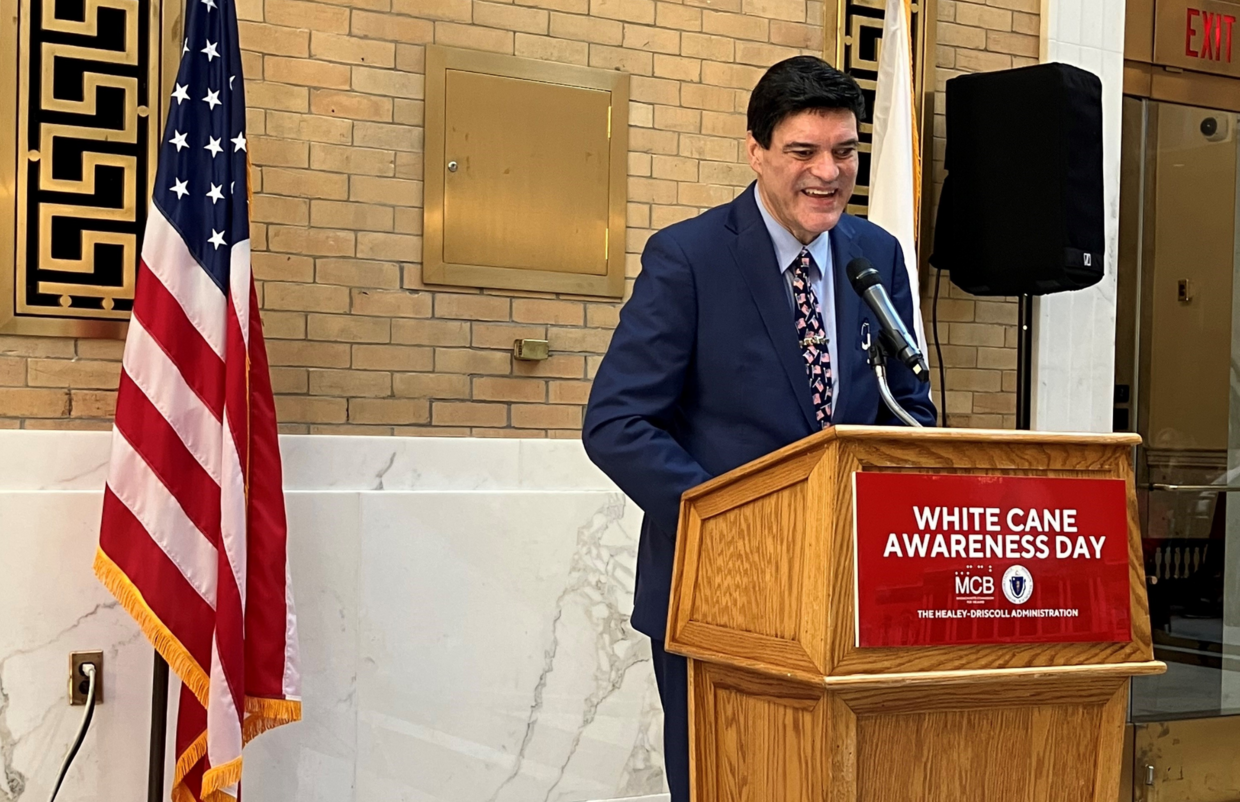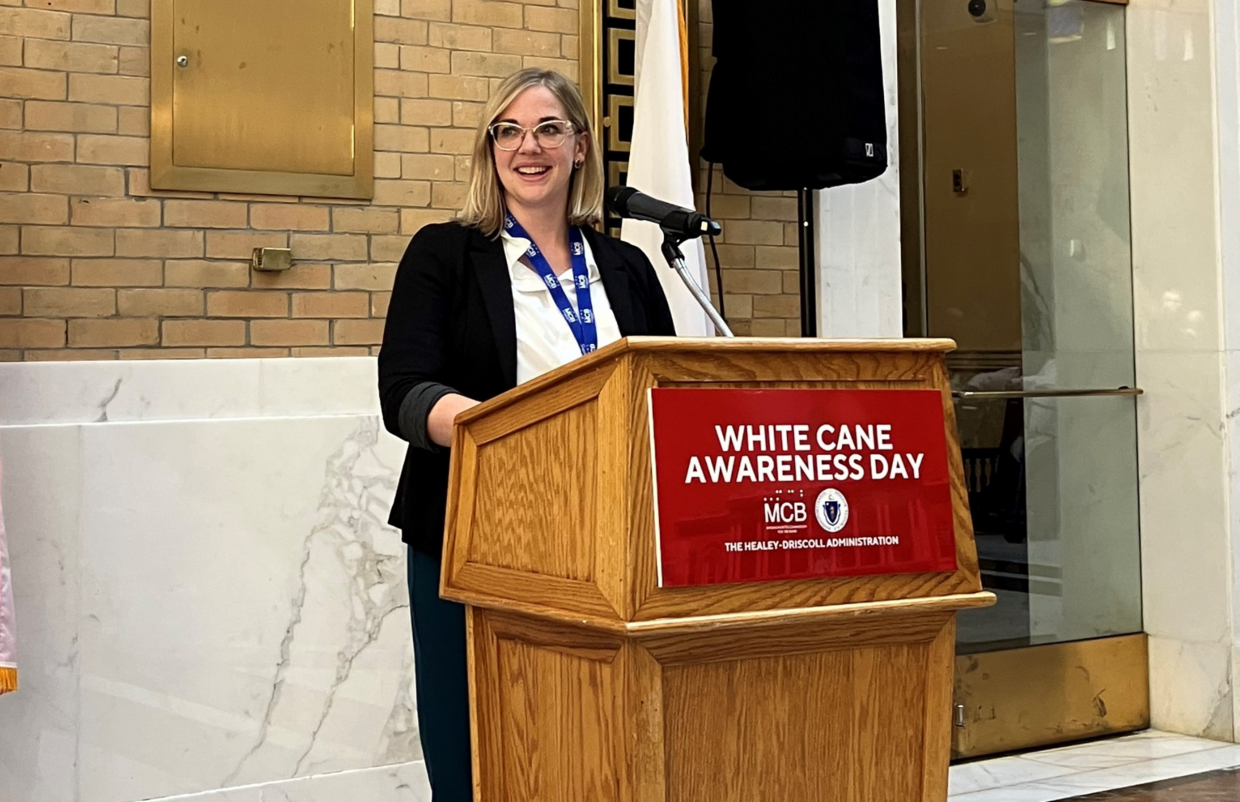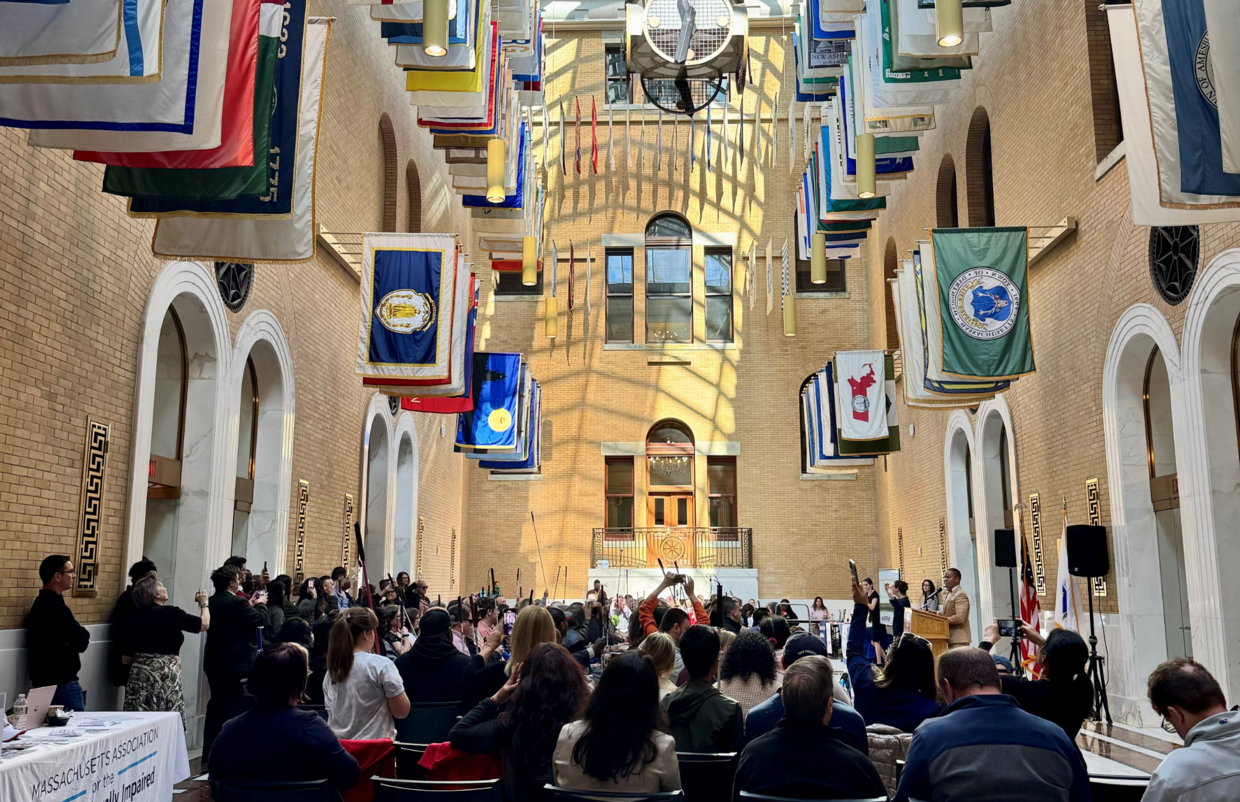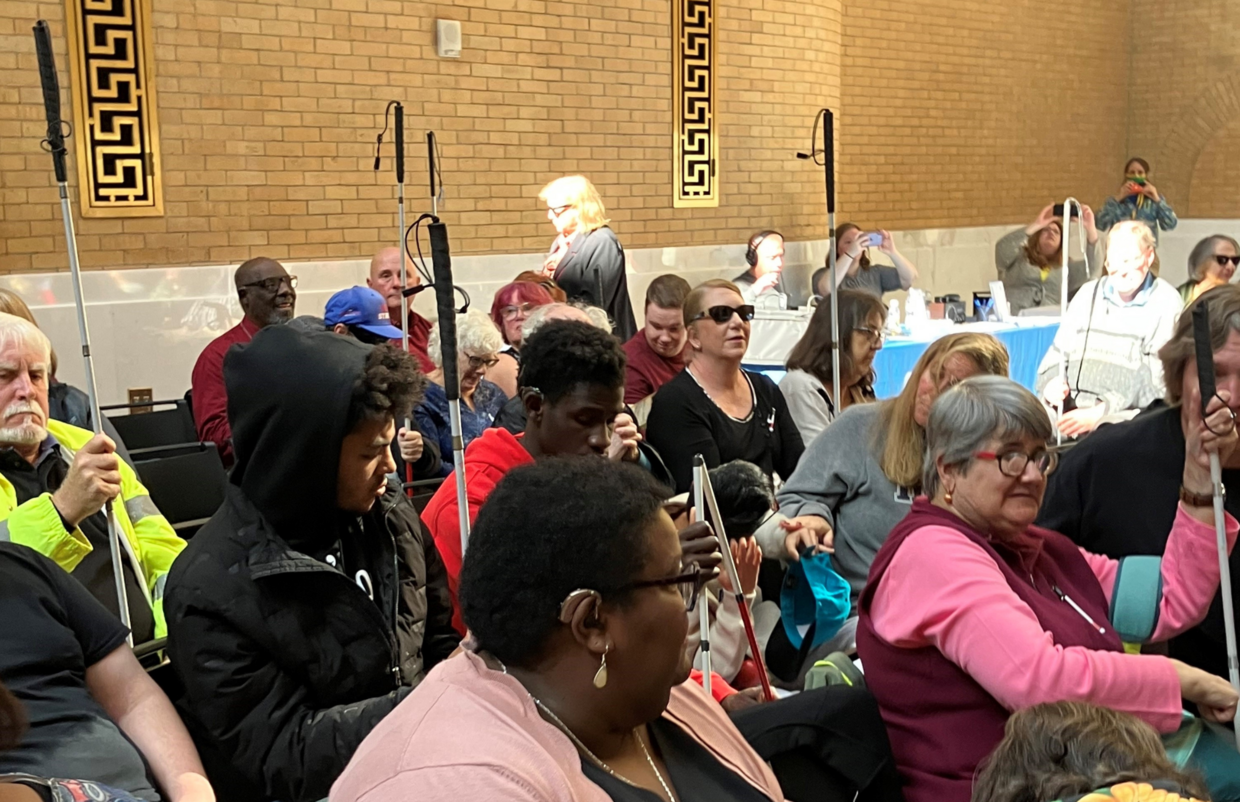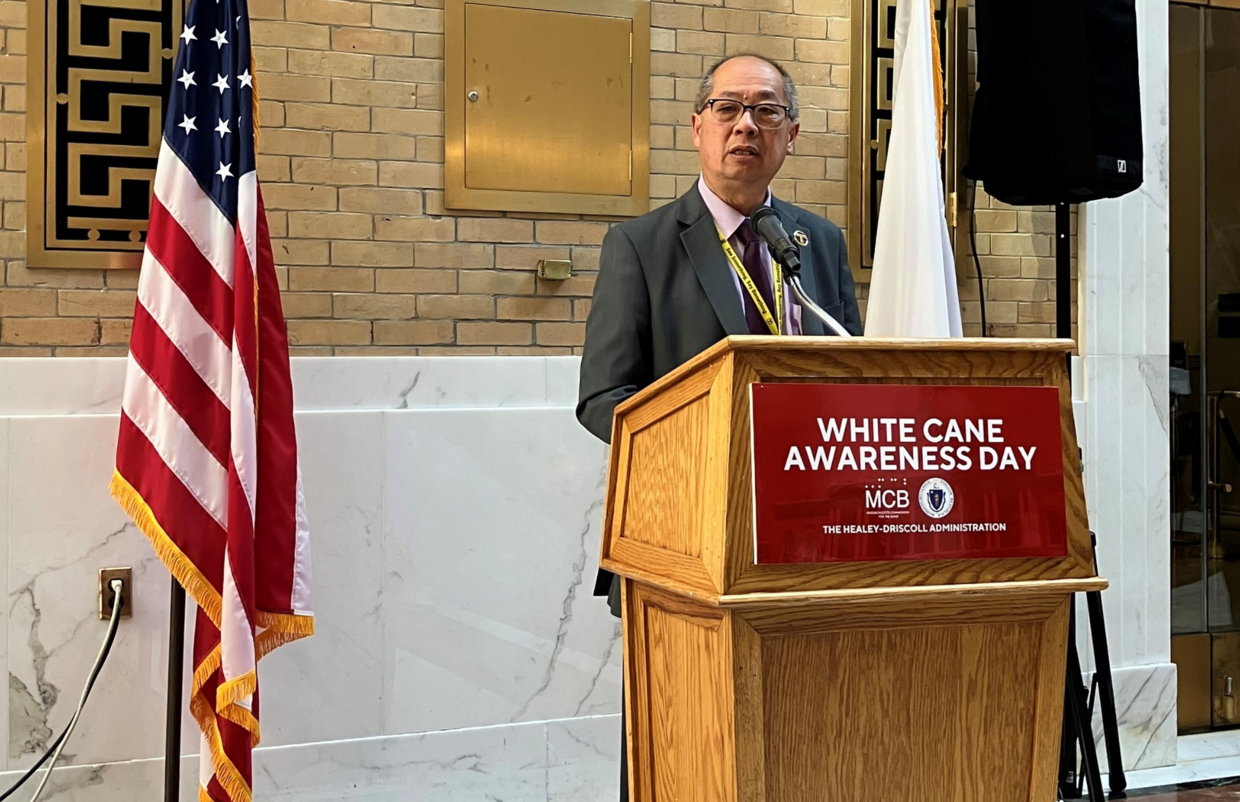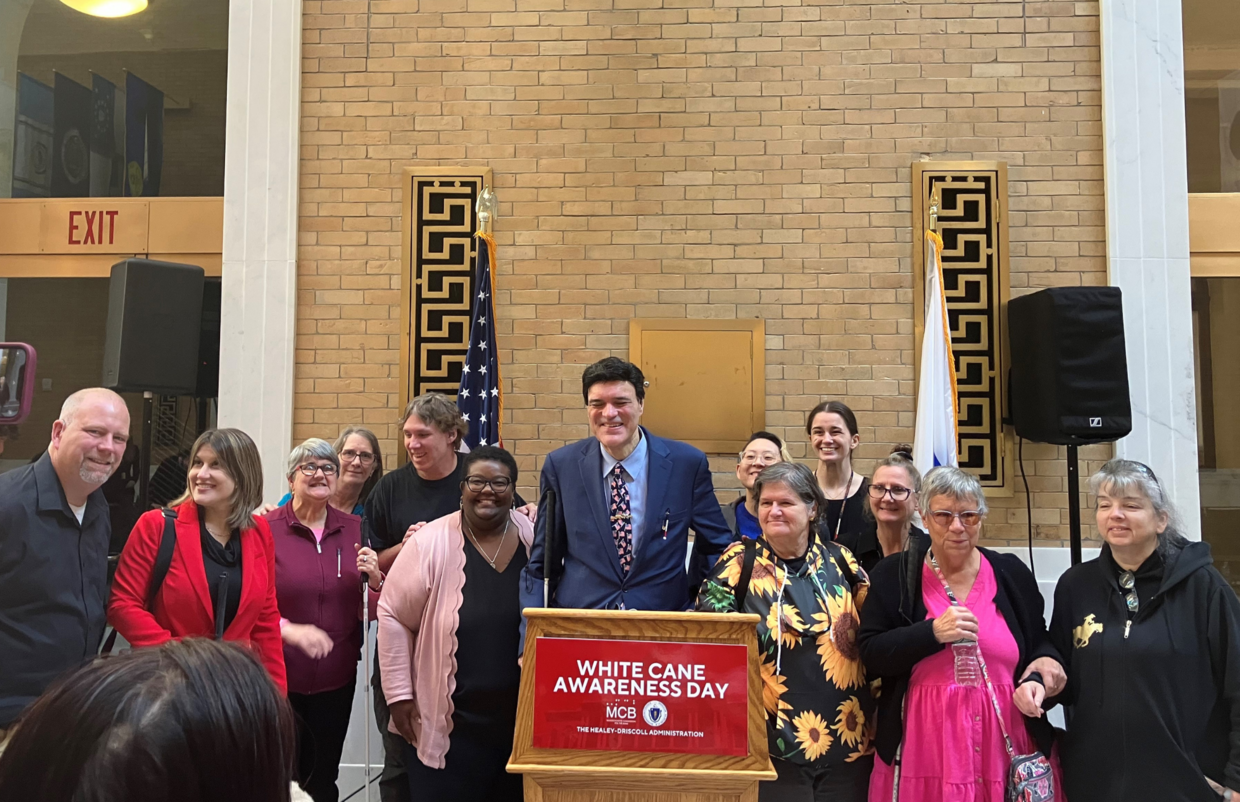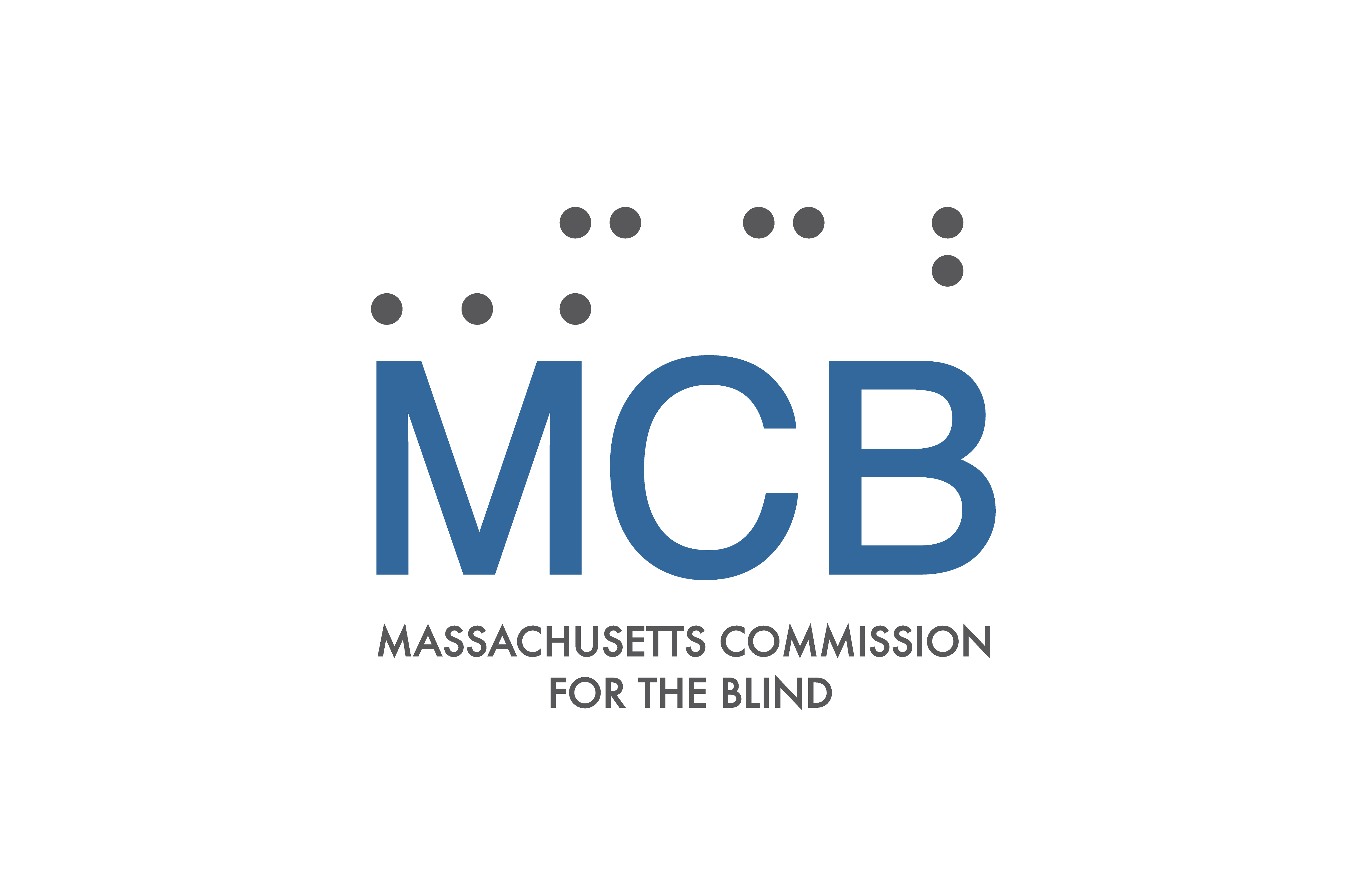- Massachusetts Commission for the Blind
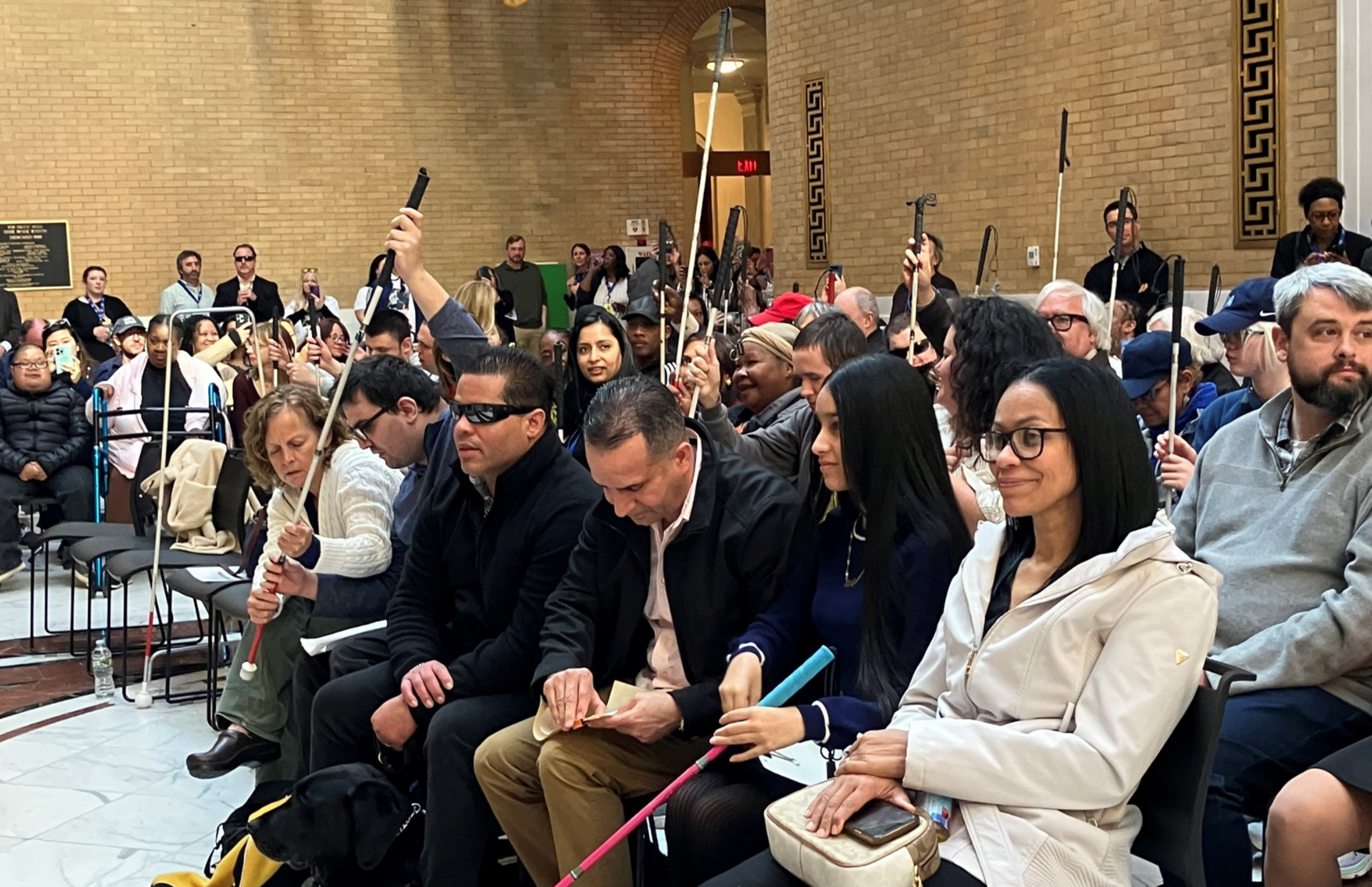
BOSTON — The Massachusetts State House was filled with energy on October 18 as hundreds of people gathered for the largest turnout ever for the annual White Cane Awareness Day Celebration. Hosted by the Massachusetts Commission for the Blind (MCB) and Perkins School for the Blind, the event brought together people with vision loss, community partners, advocates, and lawmakers to honor the white cane as a global symbol of equality.
Listen: 2024 White Cane Awareness Day Celebration
Opening the event, MCB Commissioner John Oliveira highlighted the significance of this year’s celebration, marking the 60th anniversary of White Cane Awareness Day as a national observance. “This day serves as a powerful reminder of the strength, resilience, and determination of people with vision loss,” said Oliveira, who is legally blind. He emphasized that the white cane transcends the role of a mobility tool, representing a beacon of freedom that enables people to navigate their environments and embrace new opportunities. “Today, we celebrate not only the white cane, but the people who use the white cane with pride.”
Health and Human Services Secretary Kate Walsh delivered greetings from Governor Healey and Lt. Governor Driscoll before reading the Governor’s proclamation declaring October 15 as White Cane Awareness Day in Massachusetts. “It’s so important for me and those of us in government to ensure this state is a place where everyone can live freely, safely, and participate in their communities,” Walsh said, reinforcing the day’s message of inclusivity.
Secretary Walsh Gifts Blind Barbie to Young Girl at White Cane Awareness Day Celebration
Senator Robyn Kennedy, co-chair of the Joint Committee on Children, Families, and Persons with Disabilities, echoed this sentiment, emphasizing the white cane symbolizes confidence in navigating public spaces and accessing educational and employment opportunities. “Thank you for being here, being loud, and for bringing your voices to your house and making sure myself and all our colleagues hear your voices and remain committed to ensuring every corner of our Commonwealth becomes and remains fully accessible,” she said.
MCB Director of Orientation and Mobility (O&M) Ally Bull spoke about the importance of training in this field. “We’re fortunate in Massachusetts to offer O&M training to everyone registered with MCB,” she said. “O&M training can take many forms based on individual needs, from previewing a new job site to learning to use a white cane for daily tasks. Our O&M specialists are dedicated to providing support wherever access is needed.”
Boston Officer Hailed as Hero on White Cane Awareness Day After Lifesaving Act of Bravery
In a moment of solidarity, MCB Director of Programs and Services Joe Buizon invited attendees to join him in raising their white canes. “For those with full vision, look around and listen. That sound - the segments of the cane opening - symbolizes independence,” he said. “Today, we come together to demonstrate the power of partnership.”
Empowering Voices: Celebrating Independence and Identity on White Cane Awareness Day
Community partners were also recognized for their efforts in raising awareness about the white cane and the White Cane Law, which requires drivers to yield to pedestrians using a white cane or dog guide. Bull thanked the Scituate Department of Public Works for promoting awareness through roadside message boards, Lawrence Public Schools for creating a public service announcement about students with vision loss, and the Town of Brookline for advertising past celebrations.
“We’re proud to partner with MCB,” said Scituate Town Administrator Jim Boudreau. “We are committed not only to promoting the White Cane Law on White Cane Awareness Day but on an ongoing basis to make Scituate more welcoming and accessible.”
Winners of 4th Annual Meg Robertson Mobility Award Honored at White Cane Awareness Day
Highlighting the MBTA’s commitment to accessibility, General Manager and CEO Phillip Eng said, “Since joining the MBTA, my top priority has been restoring service reliability and confidence in our system. We continue to develop a capital program and invest crucial dollars to ensure many of our riders who have certain needs, particularly those who are blind or low vision, can use our system equally as anyone else.”
As the event came to a close, Commissioner Oliveira reiterated the foundational role of the white cane. “Everything starts with the white cane, he said. "The cane is the base to giving you the freedom that you need to get around."
Musician Matteo Faso, a recent graduate of Perkins School for the Blind, brought the venue to life with his inspiring music, filling the venue with a sense of triumph and determination.
The Talking Information Center broadcast the event live allowing people to celebrate remotely and ensuring those unable to attend in person could still participate.
A dozen organizations that support people with vision loss set up resource tables, sharing information and resources: City of Boston Disabilities Commission, Massachusetts Association for the Blind and Visually Impaired, Massachusetts Audio Information Network, Massachusetts Office on Disability, MBTA Mobility Center, MBTA Department of System-Wide Accessibility, MCB/DDS Partnership Project, New England ADA Center, Partners for Youth with Disabilities, Perkins Braille & Talking Book Library, Perkins School for the Blind, The Carroll Center for the Blind, and Work Without Limits.
White Cane Awareness Day resonated deeply, with leaders and participants reaffirming their commitment to fostering a more inclusive and accessible world for people with vision loss. “The more the public sees the white cane, the more they will understand the capabilities of those who use it,” Oliveira concluded, encapsulating the day’s powerful message.
